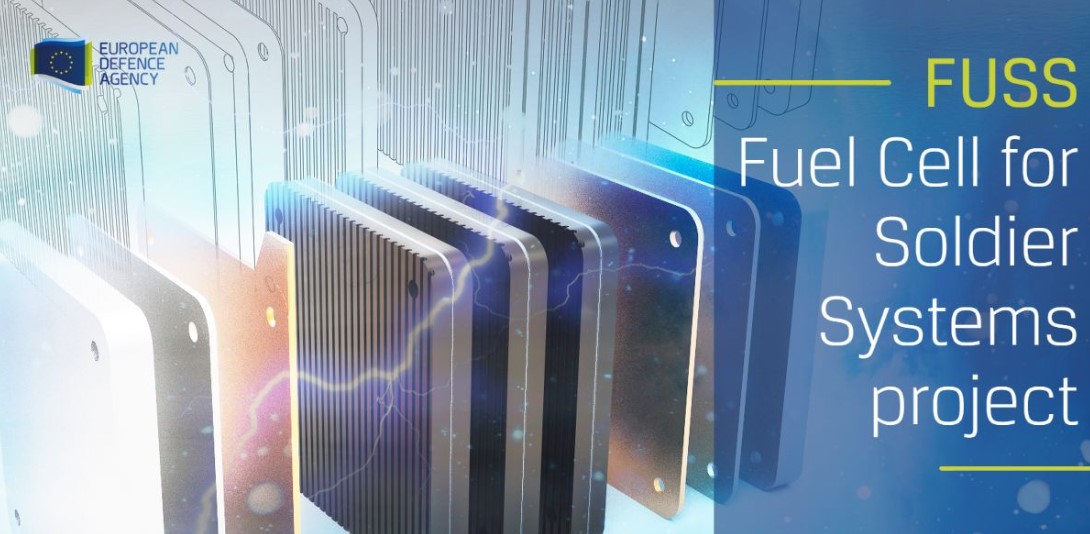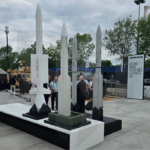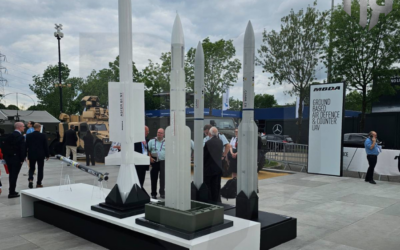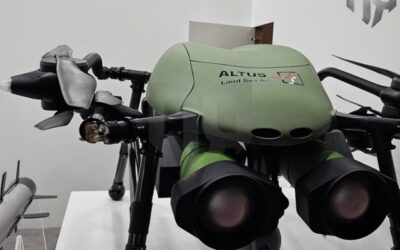With such a large number of interested attendees at MBDA’s pavilion at the Eurosatory 2024 Defence exhibition, the stand reminded of an…

The first phase of the Fuel Cell for Soldier Systems project has been successfully completed, according to the European Defence Agency (EDA).
The FUSS project aims at the development of an enhanced soldier-sized fuel cell energy source. This project involves Hungary in a leading role, as a contributing Member-State, and Switzerland.
The first phase of the collaborative research project “Fuel Cell for Soldier Systems” (FUSS) was successfully completed with the final meeting held this March at the Hungarian Research Centre for Natural Sciences in Budapest.
In the first phase, executed by a consortium composed of the Hungarian Research Centre for Natural Sciences, as project leader, and Armasuisse’s industrial partner, the most promising source of energy and the best technology option for fuel cell have been identified, considering military requirements and safety limitations.
Although not essentially new on the market, existing designs of man-portable fuel cells still lack clear advantages in terms of weight and space-specific parameters compared to existing technology such as lithium-ion batteries.
Also read: First aerial refueling of an F/A-18 Super Hornet with an unmanned aerial vehicle is a fact – VIDEO
From a research perspective, different fuel cell technologies have the potential to change this situation based on different innovative solutions. In this context, during the first phase, different fuel cell technologies were assessed against specific military use cases and compared to the Lithium-Ion batteries’ performances, taking into account the typical soldier mission durations, energy, and power requirements as well as logistic implications.
Based on the recommendations provided in the first phase, a Research and Technology (R&T) demonstrator of fuel cell for soldier systems will be developed and tested in relevant environments in the following phase of the project.
In the following article, you can read more about the fuel cell technology delivered by the company ADVENT to the Special Forces of the Hellenic Army.
Also read: Advent Technologies | Portable Fuel Cell products for the Special Forces
READ MORE
KNDS | Showcases full range of LEOPARD battle tanks at EUROSATORY
KNDS continues to expand its technological advantage in the field of main battle tank development, as we have witnessed at the Defence and…
THEON SENSORS | Distinguishing appearance at EUROSATORY 2024 with new range of products
THEON SENSORS attended the International Defence and Security Exhibition EUROSATORY 2024 as an ambassador of Greek innovation…
EUROSATORY 2024 | Missile Artillery Solutions from MBDA
With such a large number of interested attendees at MBDA’s pavilion at the Eurosatory 2024 Defence exhibition, the stand reminded of an…
KNDS | Showcases full range of LEOPARD battle tanks at EUROSATORY
KNDS continues to expand its technological advantage in the field of main battle tank development, as we have witnessed at the Defence and…
THEON SENSORS | Distinguishing appearance at EUROSATORY 2024 with new range of products
THEON SENSORS attended the International Defence and Security Exhibition EUROSATORY 2024 as an ambassador of Greek innovation…
Ministry of Defence | Organization of Hellenic EDF Info Day
A Conference entitled “EDF Info Day” is organized in the Amphitheater of the National Gallery on Tuesday, July 9 from 09:00 to 17:00.
ALTUS LSA | Participates in EUROSATORY 2024 with KERVEROS in the foreground
The participation of ALTUS LSA in EUROSATORY 2024 is among the Greek participations of operational significance.
Freddy Beleris | Ιn jail until October
The elected mayor of Heimarra and Member of the European Parliament of New Democracy will remain in prison until October…


















